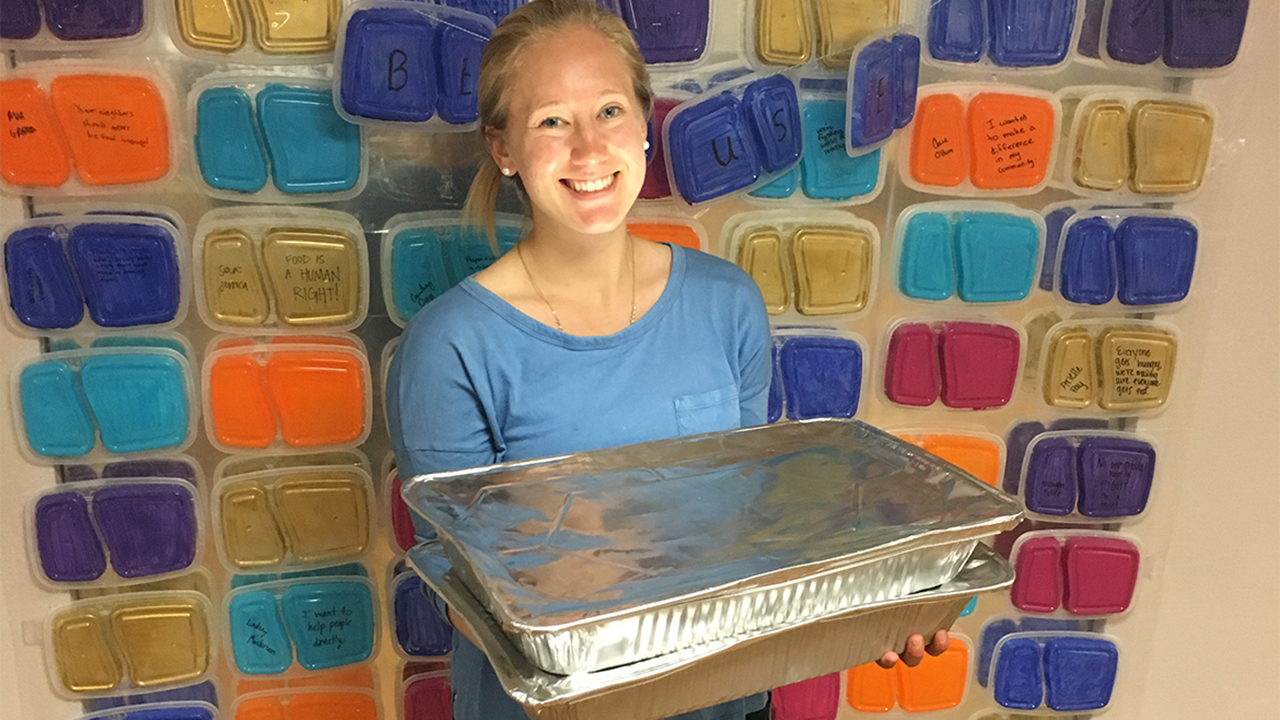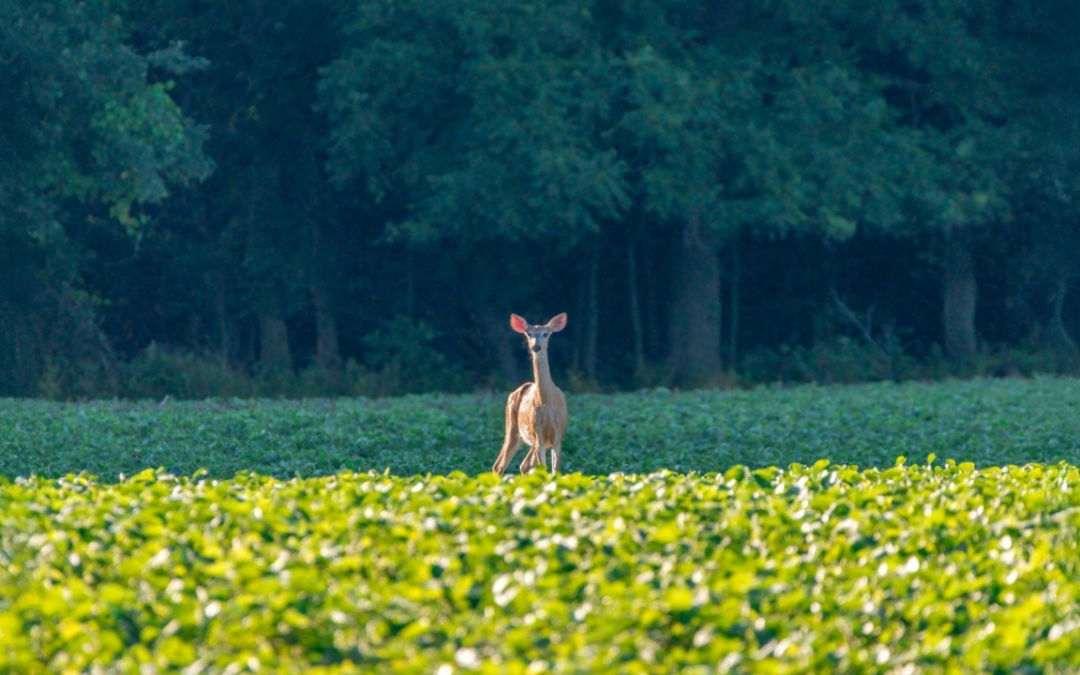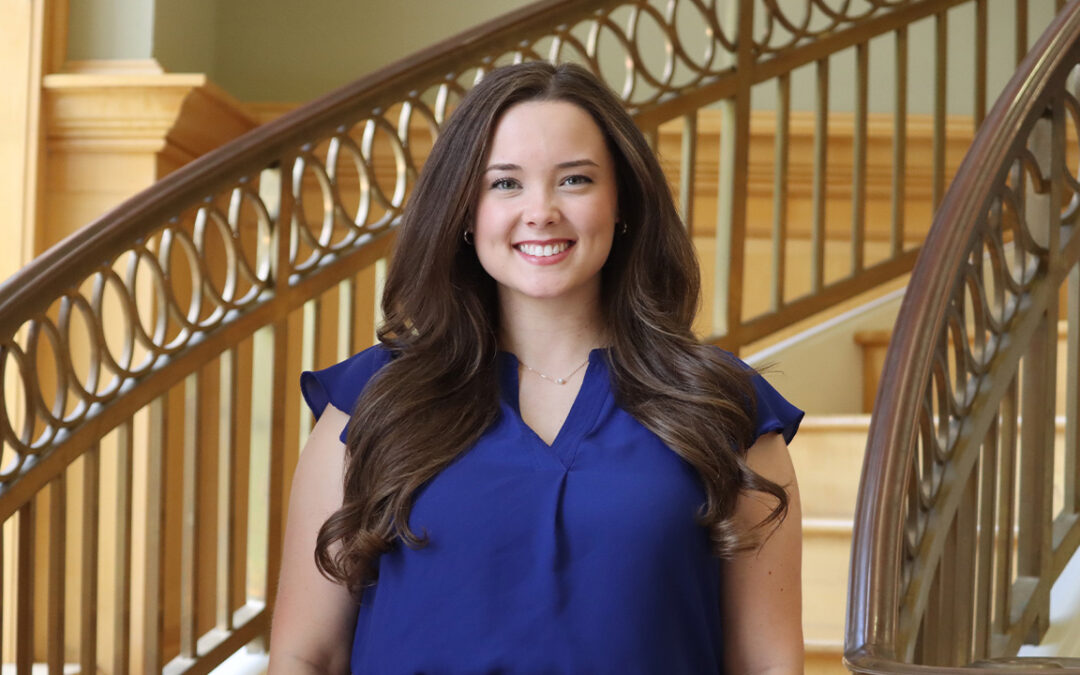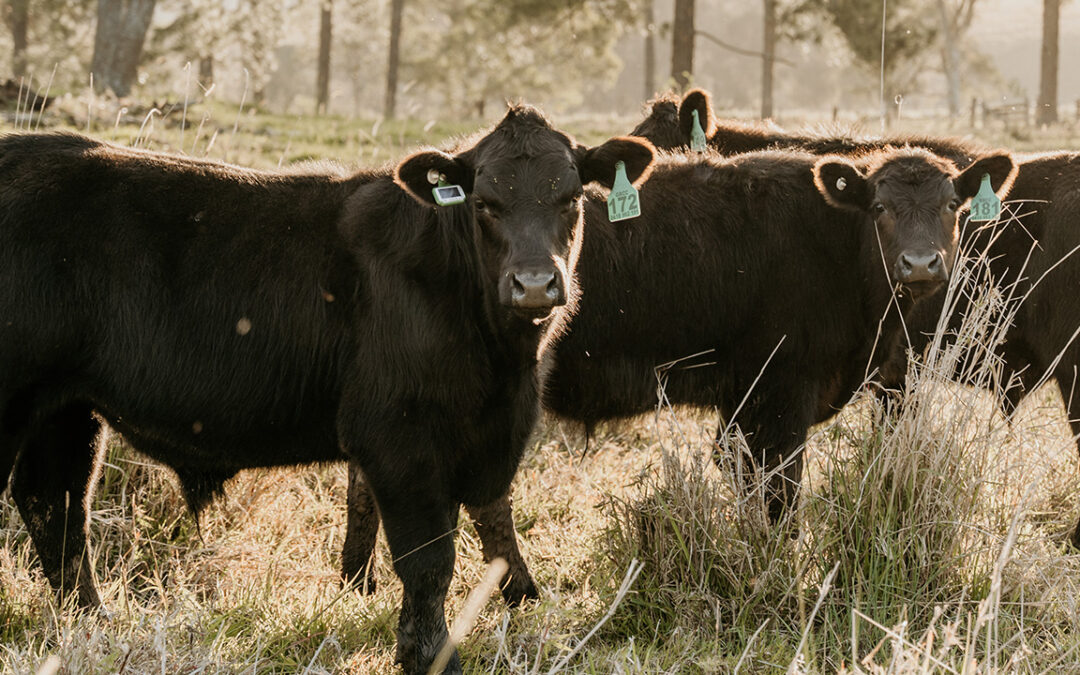By Laura Cauthen / May 2, 2018 11:58:28 AM
Feature
If you’re going to keep up with Kenzley Defler, you’d better put on your running shoes. Not just because she’s an avid long-distance runner and Auburn track and field team member, but because she’s always in motion—working here, researching there and serving everywhere.
“I thrive on having a lot to do,” the graduating senior in environmental science says about her crazy-busy schedule. In addition to her track team commitments and maintaining a 3.78 GPA, she also is an undergraduate research fellow in the College of Agriculture, an intern in Auburn’s Office of Sustainability and vice president of the Campus Kitchens Project, a student-led organization that serves people suffering from food insecurity.
In her defense, the girl can’t help being so busy. She has a big, healthy heart that doesn’t flutter at the prospect of a challenge or an adventure.
That heart has a soft spot, too. Defler is committed to changing society for the better through sustainability initiatives that address two critical public-interest issues: food and health. Her research and volunteer efforts have put her in touch with some of society’s more vulnerable populations, and that’s who Defler has discovered really has her heart and where she wants to concentrate her future.
An offer to sign with Auburn’s varsity track team was the starting point for Defler’s journey from student to activist, because that, along with the university’s strong program in her declared major of chemical engineering and its location 500 miles from her Louisville, Kentucky, home, factored into her decision to attend. A visit to The Plains clinched the deal.
At some point in her sophomore year, though, Defler realized that engineering wasn’t the route for her—not because the courses were too difficult, mind you, but because she wanted a major that incorporated more community engagement.
“I just got to wondering, what would be the social impact of what I was doing,” she says. “So, I decided I wanted to do something more hands-on, in terms of helping society.”
That led Defler to the College of Agriculture’s Department of Crop, Soil and Environmental Sciences, where a conversation with professor Joey Shaw convinced her that a major in environmental sciences would satisfy both her knack for math and science and her love of tackling environmental and societal challenges. Once she combined the major with a minor in sustainability, Defler was off and running again, this time in the right direction.
Her first stop was the Campus Kitchens Project, a service organization that collects unserved food from campus dining halls and cooperating restaurants and repackages it as healthy, nourishing meals for those who aren’t sure where their next meal is coming from. She discovered the Auburn chapter when she, in her words, “was looking for something else to do,” since she had an hour or two to fill between her classes and track practice.
The project’s activities accomplished two purposes Defler holds dear—reducing waste and helping others. She started out with the organization helping pack and distribute meals, but as usually happens with her, she soon was fully involved, putting in 20 hours a week as a shift leader, supervising 60 volunteers and collecting more than 800 pounds of food and serving 835 meals a week.
Within a year, she was vice president of the organization and had the opportunity to attend the annual Food Waste and Hunger Summit in Ohio to receive Auburn’s national Kitchen of the Year Award.
“I just didn’t know how much it would impact my life,” Defler says of her involvement in Campus Kitchens.
“You can’t always see food insecurity,” she says. “It’s not always that people don’t have enough food. They just may not have access to the right foods—healthy, nutritious foods. That’s an invisible aspect of hunger, so why not take what’s not being used and would be thrown away and give it to those who need it? It just makes sense.”
On behalf of the organization, Defler landed two grants to expand the program. A $4,000 grant from the nonprofit Ecology Center and Samazon, a sustainability-focused company that produces acai berry products, went to buy a golf cart for on-campus food pickups. The second grant, from the American Association of Retired Persons, allowed Campus Kitchens to launch an outreach effort for the low-income residents at East Alabama Services for the Elderly’s housing facility. In this project, the students don’t simply deliver meals; they engage with the residents by sitting down and eating with them.
“We go beyond the meal,” Defler says. “In our serving, we also try to educate them on the nutrition of food and educate them on resources where they can provide nutritious food for themselves. And we are creating community with people.”
Creating community is an important aspect of environmental science, she says.
“It draws in the bigger picture and allows me to see the impact of certain projects,” she says. “This is important to the field of environmental science because it gives meaning to the work being done. The scientific aspects are so important, but they have to be framed by ‘why.’ Why are you doing those environmental experiences? Who is benefitting from them? How will they make a difference?”
Defler found answers to some of those questions in an elective sociology course she took spring semester 2017 under Loka Ashwood, assistant professor of rural sociology in the College of Agriculture.
As part of a class project, Defler participated in the community-based research portion of a larger investigation into the high cancer rate in the Fruithurst community, population 280, in northeast Alabama’s Cleburne County. Between 2013 and 2017, eight residents were diagnosed with cancer, including four boys under the age of 18 with leukemia.
After interviewing some of the residents and collecting data, Defler was hooked on the research and the people.
“When the semester ended, I didn’t want to be finished with the project,” she says. “I wanted to keep on with it. I felt like there was more I could still do to help these people find answers.”
So with Ashwood’s blessings, Defler applied for and was awarded a two-semester undergraduate research fellowship, effective fall 2017, for her project, “Fighting cancer with community: Using community-based research to examine carcinogenic exposures in Cleburne County, Alabama.”
Her research has focused on environmental and occupational exposures that could be contributing to the unusually high cancer rate in a community that once was home to a rubber manufacturing facility and is plagued by multiple illegal dumps.
While collaborating scientists perform geologic and water testing and surveys of the area, Defler is talking one-on-one with residents, gathering information on their jobs, consumer habits and health history and using that data to develop profiles of the subjects and track trends in respondents’ answers. In the process, she has bonded with and invested in her interviewees and hopes the information will contribute to finding the answers for the community.
Ashwood is convinced that Defler’s research is making an impact.
“Kenzley is an outstanding student who has done important work helping the community of Fruithurst,” Ashwood says. “She is diligent, hardworking and dedicated to making change in the world.”
So far, the research team has found that chemicals of concern, including heavy metals and volatile and semi-volatile organic compounds, are present in Fruithurst’s groundwater and soil samples, and Defler has determined that residents are exposed to these toxins daily. Impassioned by the findings, she has discovered another avenue where she wants to effect social change for the community.
“This research has really opened my eyes and exposed me to environmental justice issues,” says Defler. “It has allowed me to meet people who have been victims of their environment but have no political power or financial capacity to fight for solutions or answers.”
One immediate recommendation that has come out of the study is for all Fruithurst residents to stop using well water and switch to the municipal water supply to avoid further exposure to the chemicals in the groundwater. Findings and recommendations like these have led Defler to another realization.
“I realize that there are actually a lot of little things you can do that have the biggest impact,” she says. “I’ve been empowered with the knowledge that, while I can’t make a difference for everyone, I can make a difference for those around me, and that’s a step in the right direction.”
Because she has so much to accomplish, Defler admits she has a hard time saying no, but at the end of 2017, she decided it was time to hang up her running shoes and retire from the track team.
“It was too much,” she says. “I actually had to take a step back. It was a tough decision, but I was just committed to too many things.”
Right before her retirement, though, she earned a major honor when she was named Auburn’s Auburn female recipient of the Brad Davis Southeastern Conference Community Service Post-Graduate Scholarship, an award for athletes who demonstrate a commitment to serving their communities. She’s now in the running for the overall SEC award.
While Defler has made a difference in Alabama communities as a student, she’s going a little farther afield for the next stop on her journey. In July, she will head to Tanzania in East Africa for a 27-months stint with the U.S. Peace Corps, teaching science to grade-school students. She’s looking forward to the adventure and to the challenge.
Odds are, she’ll find some other way to serve her new community. And when she does, she’ll run with it.
By Laura Cauthen




